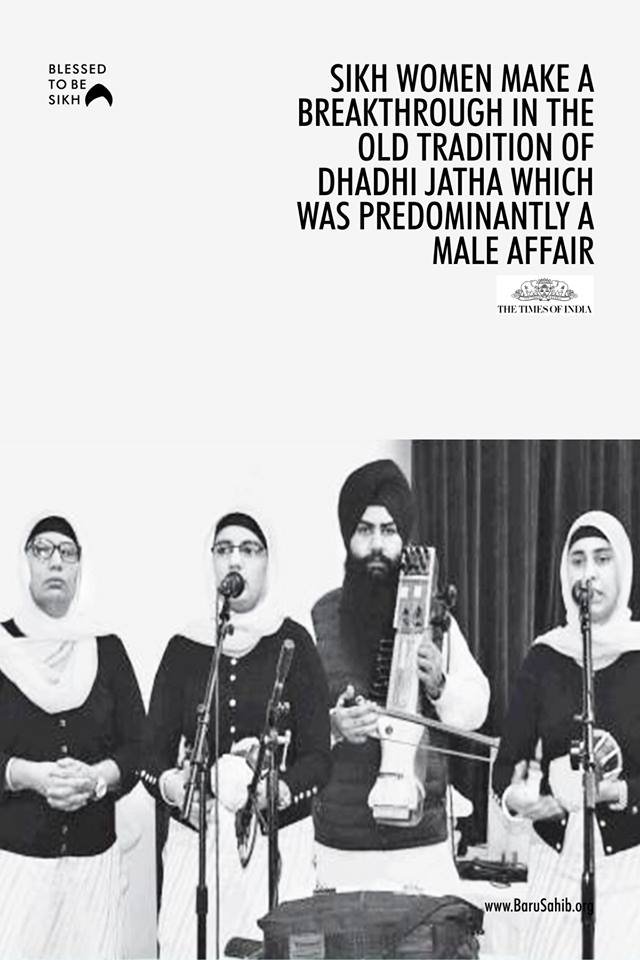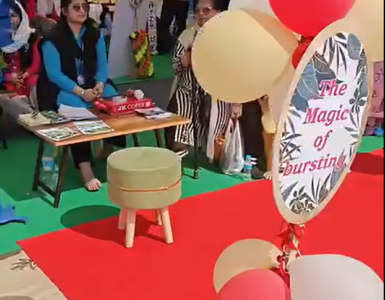“Grandpa, can you tell me another story?” little Nini asked as she cuddled up next to her grandfather.
“Of course, Nini,” her grandfather replied with a smile. “Let me tell you a story about some very brave women who changed the world of music in their community.”
From Male-Dominated Tradition to Inclusive Innovation
“Once upon a time,” Grandpa began, “for over 350 years, a beautiful and mesmerizing type of music called dhaadi jatha was performed only by men in the Sikh community. These ballads were powerful, but it was always the men who sang them. That was until some courageous women decided to change things.”
Trailblazers in Dhaadi Jatha: The Pioneering Women
“It all started in the mid-1990s with two sisters, Gurdeep Kaur Neetu and Rajbir Kaur Bhago,” Grandpa said, his eyes lighting up with pride. “They were inspired by their mother and decided to form their own dhaadi jatha called Barnale Walian Bibian da Jatha. Imagine, Nini, they were still in school when they released their first audio cassette in 1996. They were the first women to do this in a field that had always been dominated by men.”
Overcoming Barriers: Balbir Kaur’s Inspirational Journey
“Then there was Balbir Kaur,” Grandpa continued. “She faced many challenges. Despite having limited education and facing traditional expectations, she didn’t let that stop her. With the support of her husband, who learned to play the sarangi just to accompany her, she pursued her passion for dhaadi jatha. For over ten years, they worked together, showing incredible dedication and reshaping the musical landscape.”
Carving Out a New Identity: Women Sarangi Players
“Sarabjeet Kaur from Benapur village in Jalandhar also made her mark,” Grandpa said. “She became one of the rare female sarangi players in a sphere that was traditionally male-dominated. Even though she faced personal losses, her commitment to her craft was unwavering. She showed everyone that women could excel in dhaadi jathas too.”
Shifting Naming Conventions: Reflecting Gender Inclusivity
“One interesting change that came with women entering dhaadi jathas,” Grandpa explained, “was how they named their groups. Unlike the male groups named after the orator, women-led jathas were often named after the singers themselves. This small change was a big step towards making women more visible and recognized in the musical genre.”
Community Acceptance and Global Recognition
“These women didn’t just change things locally,” Grandpa said proudly. “They gained acceptance and respect within the Sikh community. They received invitations to perform alongside their male peers and even gained international recognition, especially in places like Canada. Their music touched hearts all over the world.”
Empowerment through Music: Transforming Lives
“For women like Balbir Kaur,” Grandpa added, “being part of dhaadi jathas was about more than music. It gave them a sense of empowerment and identity. Their journey from defying societal norms to achieving recognition showed how transformative music could be.”
Conclusion: Women Leading the Future of Dhaadi Jathas
“These women,” Grandpa concluded, “represent a significant shift towards gender inclusivity in traditional Sikh music. Their perseverance and passion not only challenged established norms but also paved the way for a more diverse and inclusive musical future. They continue to captivate audiences with their performances, inspiring future generations and redefining the genre.”
Nini looked up at her grandfather with wide eyes. “Wow, Grandpa, those women are so brave and amazing!”
“Yes, they are, Nini,” Grandpa said, hugging her close. “Remember, no matter what challenges you face, you can always make a difference, just like these incredible women did.”














Add comment